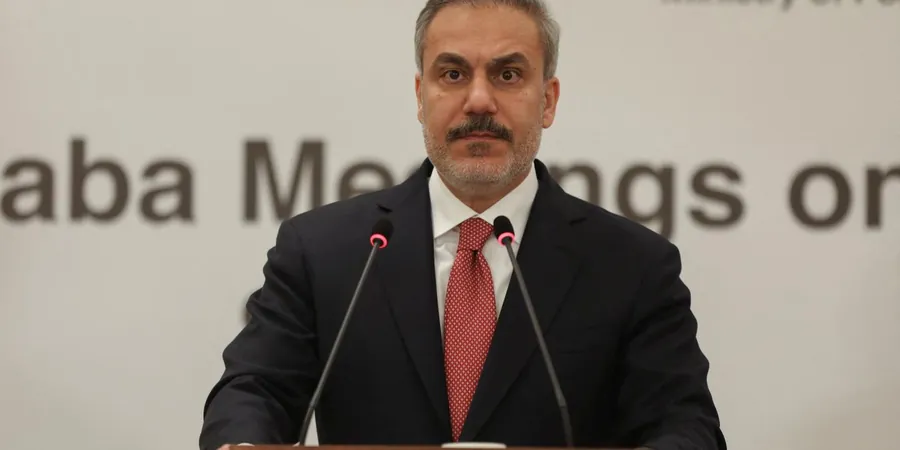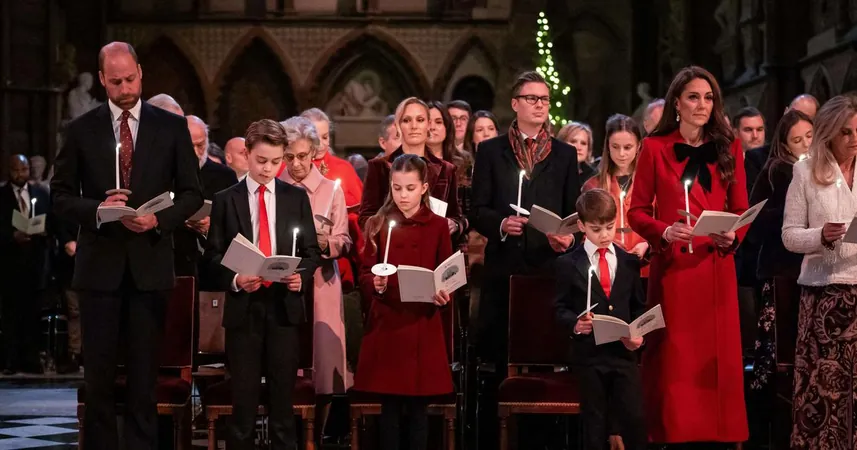
Crisis en Syrie : La Turquie appelle à réévaluer le statut des islamistes au pouvoir
2024-12-18
Auteur: Emma
Recent strikes in the Middle East are escalating tensions, with Israel targeting Houthi military sites in Yemen as retaliatory measures against missile attacks aimed at its territory. The Israeli army reported intercepting missiles launched from Yemen, which they claim are part of ongoing Houthi aggression supported by Iran. These airstrikes targeted vital military infrastructure, raising concerns about the ongoing conflict's implications for regional stability.
Meanwhile, Turkish Foreign Minister Hakan Fidan expressed his belief that the international community should reconsider the status of Hayat Tahrir al-Sham (HTS), stating that it is time for the United Nations to remove the group from its terrorism list. Fidan highlighted that HTS has distanced itself from entities like Al-Qaïda and ISIS, arguing for a more nuanced approach to Syria's evolving political landscape. This statement comes as Turkey balances its relationships with various groups within Syria, while still classifying HTS as a terrorist organization.
During a recent interview, Fidan also addressed criticisms regarding Turkey's role in Syria, specifically rejecting claims that the rebel victory represents an unwelcome power grab by Ankara. He stressed that the situation should be viewed through the lens of the Syrian people's desire for change, rather than as an external occupation. Fidan emphasized that Turkey seeks cooperation rather than dominance, promoting a shared effort to rebuild the region's future.
In a related development, the ongoing humanitarian crisis in Syria is dire, with calls from the United Nations for a significant increase in aid assistance. Tom Fletcher, a UN humanitarian official, indicated that the window of opportunity to provide aid is closing, urging international donors to act promptly to support the rebuilding of the war-torn country.
As diplomatic efforts continue, France is set to host an international meeting on Syria in January, aimed at coordinating efforts for a credible and inclusive transition led by Syrians themselves. This dialogue reflects a growing recognition among global powers of the need for a comprehensive strategy to support Syria's reconstruction and stabilization efforts in a post-Assad landscape.
Furthermore, the discovery of numerous bodies and remains by aid organizations near Damascus underscores the urgent need for accountability and justice within the region, as security dynamics shift with the fall of the Assad regime. The international community remains watchful, hoping to influence a peaceful resolution while addressing the numerous challenges that lie ahead.




 Brasil (PT)
Brasil (PT)
 Canada (EN)
Canada (EN)
 Chile (ES)
Chile (ES)
 España (ES)
España (ES)
 France (FR)
France (FR)
 Hong Kong (EN)
Hong Kong (EN)
 Italia (IT)
Italia (IT)
 日本 (JA)
日本 (JA)
 Magyarország (HU)
Magyarország (HU)
 Norge (NO)
Norge (NO)
 Polska (PL)
Polska (PL)
 Schweiz (DE)
Schweiz (DE)
 Singapore (EN)
Singapore (EN)
 Sverige (SV)
Sverige (SV)
 Suomi (FI)
Suomi (FI)
 Türkiye (TR)
Türkiye (TR)